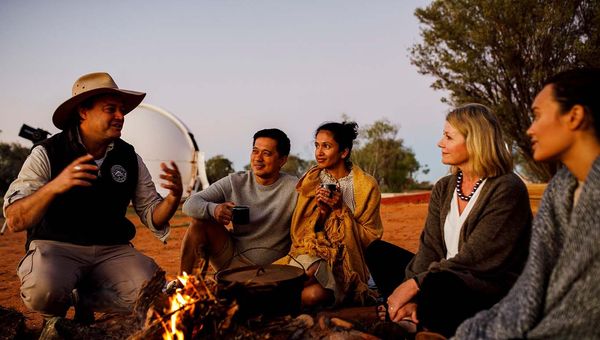Sustainable travel, eco-tourism, responsible travel — these are more than snappy slogans or short-lived trends. And while it may not be driving sales, booking this type of trip has become an added incentive for travelers who care about how their travel impacts the destinations they visit.
According to Booking.com’s 2023 Sustainable Travel Report — which surveyed more than 33,000 people in 35 countries — 76% of travelers say they want to travel more sustainably. Forty-three percent would be willing to pay more for responsible travel options and 47% want tips on how to travel more sustainably on a budget. And a recent Research and Markets report revealed that the U.S. sustainable tourism market — valued at $66.22 billion in 2023 — is projected to be worth $116.46 billion by 2029. That means advisors who become trusted guides by offering sustainability insights, insider knowledge and encouragement to tread lightly on the earth can demonstrate their value and boost their bottom lines.
Airlines, hotels and cruise lines may have the biggest impact on sustainable travel, but advisors also have a leading role to play. Here’s how you can steer clients towards more responsible choices while also future-proofing your business.

MAKE TRAVEL MATTER® Experience in Perugia, Italy, at the Atelier Giuditta Brozzetti with Marta Cuccia. Courtesy of Trafalgar
Tapping into what travelers want to learn and do
How people travel today reflects their personal identity, and they care about how their travel dollars affect their chosen destination and its residents, says Martha Honey, CEO of Responsible Travel Consulting in Rhinebeck, NY. Travelers also want to become immersed in authentic experiences, so advisors are putting more thought into creating great vacations that meet these demands, along with the three tenets of responsible travel.
“First, it provides tangible benefits for conservation and is light on the land, tries to be as unobtrusive as possible, do least damage to the land as possible,” says Honey, who co-founded the Center for Responsible Travel (CREST), a non-profit organization in Washington, DC.
“It respects local cultures and benefits local host communities, and finally, it's educational, enjoyable and experiential for travelers, where they not only have a great time but learn something new in the process.”
For travelers who are tired of hearing the phrase ‘leave nothing but footprints’, learning about brands that promote responsible travel can help them buy into tours and programs centered around the concept. And as demand for sustainable options surges, advisors embracing the sector can see more repeat clients.
Advisors can take the guesswork out of sustainable travel
Honey notes that while more travelers are asking for it, booking sustainable travel can be challenging.
“It takes some research to make sure that what you're putting together really represents companies that are reputable, responsible, and committed to the principles of travel that gives back to the destination and to the local people,” she explains.
For advisors wanting to explore this space for their clients to find vendors, tour operators and other companies focused on sustainable travel, Honey suggests doing some homework. For example, consult websites with comprehensive listings of responsible tourism operators.
“Check the criteria for these companies being admitted to those websites and keep an eye on who's winning some of the travel awards,” she says.
Honey notes that because sustainability practices and principles are sometimes hidden on tour operator or travel websites, advisors sometimes have to dig deeper to research and vet suppliers. For instance, finding out if food or furnishings are sourced locally, or how a vendor supports the environmental or cultural sectors of their destination can be tricky.
“This really should be showcased much more than it oftentimes is. And it's not like we have one directory to go to. It still takes work and word of mouth,” she explains.
“We need to be pushing much harder to make sure that not only the consumer, but perhaps even more importantly, the middlemen — the tour operators, the media outlets — know where to look for sustainable companies. I think some operators are starting to highlight this, because they’re realizing it’s a good selling point to be promoting the responsible activities companies are involved in.”
Incorporating sustainability into your business
Shannon Guihan, Chief Sustainability Officer and head of TreadRight, The Travel Corporation’s non-profit foundation, suggests weaving responsible values into all trips, rather than seeing it as an add-on, because that’s what travelers want.
With so many options available, advisors should have no trouble booking sustainability-focused travel, she adds. For example, The Travel Corporation (TTC) continues to grow the offering of MAKE TRAVEL MATTER® Experiences on its tours across 40 brands — these offers aim to preserve and support the people, the wildlife and the planet with each visit. TTC is also committed to lift underrepresented groups in travel; one of its brands, Trafalgar, was recently recognized by Travel & Leisure's 2024 Global Vision Awards as a tour company making a difference in responsible travel.
“By traveling with us, you know that we have in place an animal welfare policy, and that all of our wildlife experiences have been vetted against it. You know that we're working with our supply chain to abolish single-use plastics and encourage the use of renewable energy,” says Guihan.
Guihan suggests advisors look for tour operators that have demonstrated their dedication to this growing sector.
“Check if their business is reporting on its sustainability progress — it’s the height of transparency, and you’ll learn how they’re faring against their goals,” she says. “At The Travel Corporation, we produce reports to make sure the travel agent community can understand we’re not greenwashing. Our goals address the travel experience, diversity, inclusion, waste, sustainable procurement, making sure we're not just using too much of the world's resources, and climate change.”
TTC’s third annual Impact Report will be released on June 5th of this year, showcasing the company’s positive impact and how it performed in 2023 in reaching its sustainability goals.

Be My Guest Experience at the Earth Sanctuary in Alice Springs, Australia. Courtesy of Trafalgar
Travel advisor Tina Salloum notes that even if clients don't specifically ask about responsible tours when they first call, it’s easy to share that information.
“I think it's a huge value add; I'll tell them about an itinerary and mention it’s a MAKE TRAVEL MATTER® tour, people love that; all they need to do is experience it once, and we've educated them in sustainable travel,” explains Salloum.
“Then maybe the next time they go, that’s what they’ll look for. It’s our responsibility to let them know what’s available to them.”
Battling over-tourism
Another way advisors can promote responsible travel is to steer their clients away from super popular destinations or sectors that feed into over-tourism or non-sustainable practices, says Honey.
“Promote travel in the shoulder seasons, and travel to lesser known but still exquisite destinations or small towns that may not have been as visited as Barcelona or Amsterdam but still have some of those same wonderful qualities about them,” she suggests.
“And encourage visitors to stay longer and really get to know a destination. Get travelers to select locally owned businesses and to move around a destination so that the tourism money is dispersed around a destination.”
As more people are traveling locally, Honey believes travel professionals should also promote responsible travel in our backyards rather than looking overseas.
This year, as part of its mission to promote off-season travel, TTC has also committed to not adding any summer departures.
“We have a strong shoulder season offer in destinations that could really benefit from tourism dollars right now so we’re trying to move away from the challenges of over-tourism, yet still encourage foreign exchange and destinations that have come to rely on it,” says Guihan.